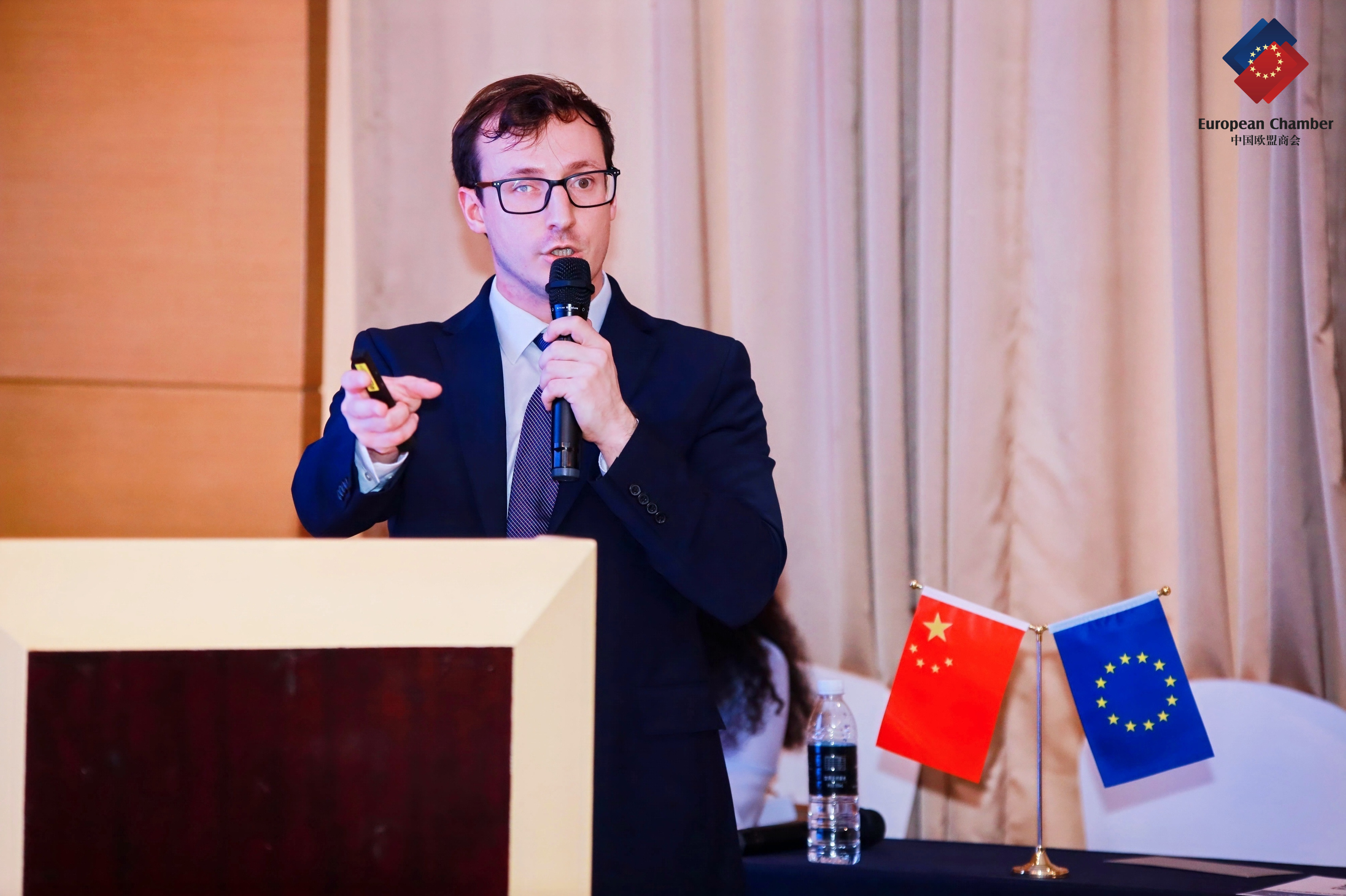 Bridging News
Bridging News
EU Chamber Report: European Firms Feel the Heat as China's NEV Push Accelerates | Insights
Chongqing — European companies are facing a tougher business climate in China as the country’s drive for new energy and localized supply chains gains pace. The European Union Chamber of Commerce in China’s Business Confidence Survey 2025, released last month, reports that this shift is putting growing pressure on foreign automakers and parts suppliers.
Adapting supply chains and investment plans
The report shows that 79 percent of surveyed European firms faced challenges last year. Fierce price wars and market competition cut efficiency and profits. According to estimates by the China Automobile Dealers Association, the traditional 4S dealership model is expected to face a wave of withdrawals this year, with around 4,000 outlets projected to close.
The global new energy vehicle (NEV) market is growing steadily. Data from China’s Ministry of Industry and Information Technology show that in 2024, China’s NEV production and sales were 9.5 times those of 2020, exceeding 13 million units and ranking first globally for the 10th consecutive year.
Despite these challenges, European firms are staying in China and adapting. Only 38 percent plan to expand in 2025, while over half aim to cut costs, mainly through layoffs. Supply chains are shifting in two directions: 26 percent of companies are moving production into China to secure market access, while 13 percent are expanding overseas to reduce geopolitical risks.
The Chengdu–Chongqing economic circle stood out as a rare bright spot, with about 75 percent of respondents expecting gains from better connectivity and supportive policies. Robbie Jarvis, Senior Policy and Communications Manager at the European Chamber, said this shows that “regional development initiatives can offset some national-level challenges if reforms on transparency and equal treatment are delivered.”

Robbie Jarvis, Senior Policy and Communications Manager at the European Chamber, interpreted China's Business Confidence Survey 2025. (Photo/European Chamber Southwest China Chapter)
Headquarters–subsidiary relations are also shifting. Four in ten companies reported some level of decoupling between China operations and global headquarters, citing compliance needs, data localisation rules, or risk management. While this insulates Chinese entities from global shocks, it raises costs, reduces efficiency, and can slow innovation.
In the survey, many companies said they still face barriers to market access and regulatory restrictions. 44 percent believe foreign and domestic firms in their industries cannot compete equally. However, 53 percent said they would invest more in China if market access improved and regulations became clearer, showing that European firms are ready to commit when reforms bring greater predictability.
International shipping stood out as the best-performing sector, with 84 percent of surveyed companies reporting year-on-year revenue growth. This was partly due to the Red Sea shipping crisis, which forced vessels to detour around the Cape of Good Hope instead of using the Suez Canal, pushing up freight rates.
Auto firms drive investment toward R&D
According to the German Chamber’s 2024/2025 Business Confidence Survey, 70 percent of respondents expect China’s auto industry to grow over the next five years. More than half of surveyed auto firms plan to boost investment, a higher share than other sectors, with 77 percent focusing on R&D and innovation.
Since 2001, Chongqing-based Changan Auto Group has built strong ties with Europe, starting with a representative office in Turin, Italy. In September 2024, it opened a subsidiary in Munich, Germany, to handle sales, technical certification, and localized product development. Chairman Zhu Huarong said the company’s global R&D network now spans 10 sites in six countries.
In a report by Economic Information Daily, Wu Zhen, President of Magna China, said that cooperation between China and overseas partners in the NEV sector has grown increasingly close in recent years, with deeper exchanges in technology, markets, and policy.
“Our collaboration with Chinese NEV companies not only supports the development of Chinese brands in Europe but also allows Magna to learn from China’s advanced NEV industry, helping us grow further in this field. We are also seeking partnerships with more outstanding Chinese automakers, and increasing R&D investment will be our first step,” Wu said.
Jochen Goller, President and CEO of BMW Group Region China, also noted, “China has a significant advantage in NEV digitalization, which gives us many opportunities for co-creation. BMW’s success in China has in fact come from industry collaboration and supply chain integration. A symbiotic ecosystem benefits both sides.”
 Related Stories
Related Stories